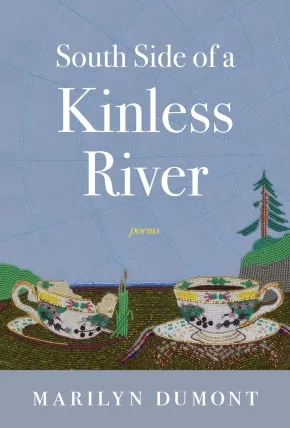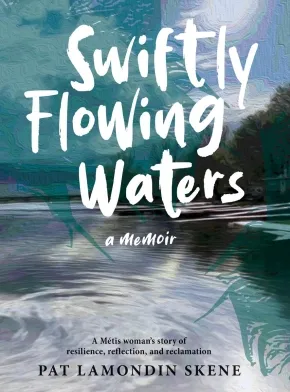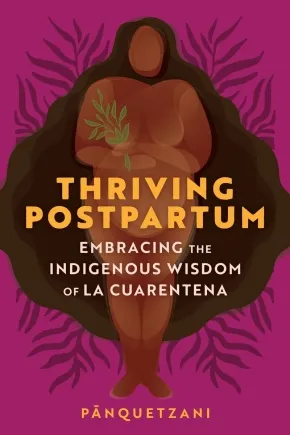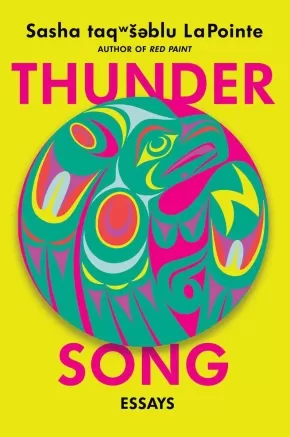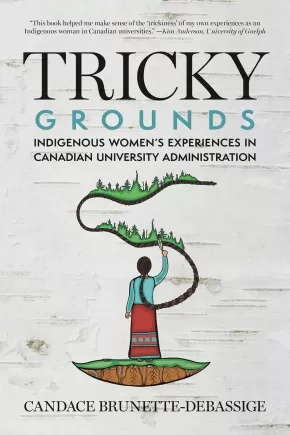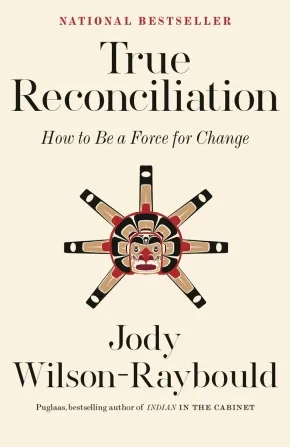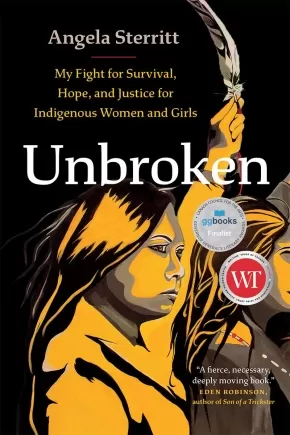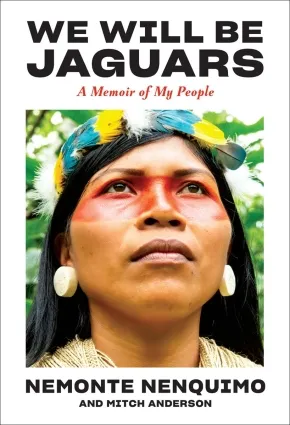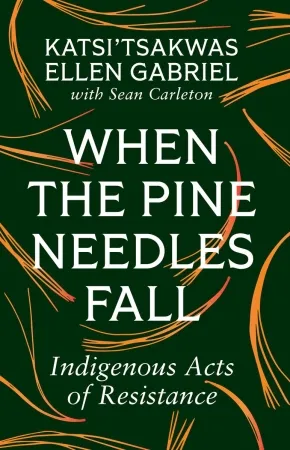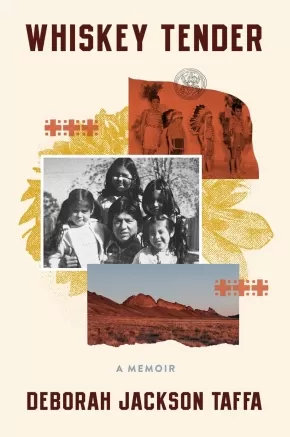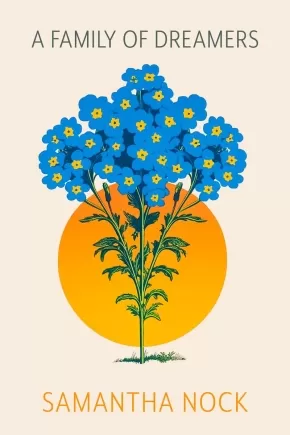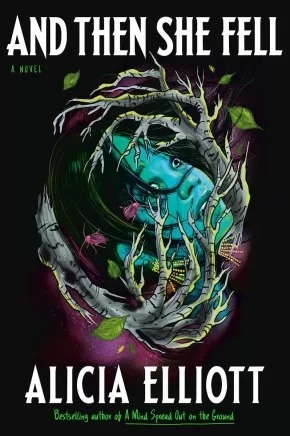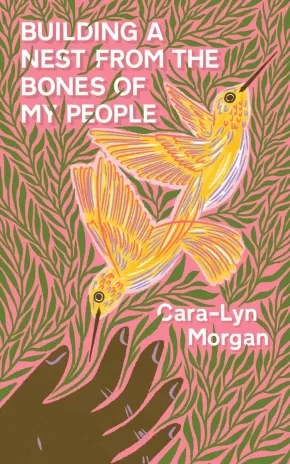Women's Studies
Synopsis:
A nuanced, relational, and community-minded new book from one of Canada's preeminent poets.
South Side of a Kinless River wrestles with concepts of Métis identity in a nation and territory that would rather erase it. Métis identity, land loss, sexual relationships between Indigenous women and European men, and midwifery by Indigenous women of the nascent settler communities figure into these poems. They add up to a Métis woman's prairie history, one that helps us feel the violence in how those contributions and wisdoms have been suppressed and denied.
Reviews
"Each poem is an anthem, every page showcasing the talent and necessity of this incredible poetic voice. Dumont brings the Métis tone, cadence and intricate stitch-work into all she creates." - Cherie Dimaline, author of The Marrow Thieves and Empire of the Wild
"The voice of this Métis woman is as loving, tender and humane, as it is powerful, satirical and political..."- Rita Bouvier, author of a beautiful rebellion
Additional Information
80 pages | 5.75" x 8.50" | Paperback
Synopsis:
Pat spent a lifetime catching up to who she wanted to be. Growing up in a Métis family, it would take her decades to shed the prejudice and shame of who she was, to find her indigeneity. After escaping an alcoholic relationship, she achieved corporate success in a man’s world, switched gears to become an author of children’s books, survived breast cancer, and accepted her husband's wish to participate in MAID. These challenges are all part of Pat’s inspiring story.
Swiftly Flowing Waters is a raw reflection of the many experiences women quietly go through in life. It’s a story about finding courage, overcoming obstacles, and the discovery of joy and fulfilment along the way.
Reviews
"No one could tell this compelling story with such precision if they had not lived it. Pat's journey, as she chronicles it from four to seventy years of age, deserves to be shared - for her Metis legacy, for her ancestors who could not speak, and for her descendants who need to know the unique truth of their origins. This memoir provides an anchor of truth that is honest and unashamed. We need more courageous authors like Pat Lamondin Skene." - Fern Perkins, Registered Citizen of Metis Nation Greater Victoria and Metis Nation BC; Educator, University of Victoria and Greater Victoria School District (retired)
Additional Information
216 pages | 7.25" x 10.25" | Paperback
Synopsis:
A powerful, lyrical collection of essays from the award-winning author of Following the River, exploring the pivotal moments in her life, and how art and nature have shaped her.
Like both memory and the moon, what's written here aims to shed what light it can, bringing it home to now.
How does a woman compose a life? The Old Moon in Her Arms is a hybrid book of fragments, pivotal moments and images in the phases of a woman's life, turning points rendered in Lorri Neilsen Glenn's lyrical prose.
Like the shifting images in a kaleidoscope, these glimpses into the life of an ordinary woman lay bare the ways family, landscape, loss, and a lifelong pursuit of knowledge have forced the author in her later years to examine what really matters. Here, readers bear witness to the making of a daughter, a student, a wife, a friend, a teacher, a mother, a feminist, an award-winning scholar and writer. Neilsen Glenn's artistry weaves personal history, philosophy, pop culture, and contemporary thought to examine moments and people who've inhabited her life. "Over time and circumstance," she says, "haven't we all been various?"
Guiding her exploration are the Cree concept of wahkohtowin, the kinship in all of creation, and the elliptical path of the moon.
This hybrid collection of singular moments celebrates connection, wonder and endless curiosity.
Educator Information
Subjects/Themes: Memoir, Creativity, Aging, Literacy Collection, Prose, Poetry
Additional Information
272 pages | 6.00" x 8.00"| Paperback
Synopsis:
From ancestral healing expert Pānquetzani comes traditional Indigenous wisdom for helping women thrive in, rather than merely survive, the postpartum experience.
Though we now have more resources for ancestral birthing and self-care practices than ever, postpartum care is still largely stuck in an outdated, patriarchal paradigm that fails to serve mothers and newborns. “Slowing down, recovering fully, and giving your baby the best start isn’t a privilege—it’s a basic human need,” says Pānquetzani, a leading expert in Indigenous health care for women. In Thriving Postpartum, she shares the sacred ritual of la cuarentena (or quarantine) that honors, nurtures, and empowers a birthing person’s transition into their new life. Here, you’ll find guidance on:
• Herbal recipes and 25 yerbas for postpartum healing
• Newborn and immediate postpartum care
• Sacred foods in la cuarentena
• Bodywork
• Your emotional body in la cuarentena
• Sex, pleasure, and intimacy postpartum
Pānquetzani teaches this 40-day journey as a spiritual rite of passage, one that has endured colonization and supported women in Mesoamerican, Mexican, and Central American communities. She shares everything you’ll need—from ancestral recipes for lactation and replenishing, to prayers and somatic practices for physical, emotional, and sexual recovery. Through traditional stories and practical guidance, she also helps you engage your support network, become your own best advocate, and lay a healthy foundation for the years to come.
“This wisdom has come from my familia and is a direct inheritance from our collective body of knowledge,” says Pānquetzani. Imparted with love, tenderness, and respect, here is an invitation to participate in a rich tradition that celebrates birth and motherhood as sacred acts of creation.
Reviews
“Thriving Postpartum is imperative to the ancestral healing of all birthing people and their families. Prioritizing Indigenous practices impacts more current social injustices than we even realize—everything from sustainability to the protection and equality of Black and Brown bodies. Pānquetzani’s book is saving lives, one generation at a time.” —Kehlani, activist, home birther, and award-winning singer and songwriter
“This much-needed book brings to light the important and historical knowledge of Mexican Indigenous herbal medicine for women during their postpartum time. Pānquetzani provides a rich, practical, and highly effective guide on how to care for yourself with traditional herbs, body practices, and sacred foods and recipes from her years of experience working with women and expanding on the wisdom of her abuelas. She also lovingly and unflinchingly guides BIPOC new mothers through the variety of emotions that surface during this transition into motherhood to help navigate ancestral and familial wounds, systemic oppression, and relationships and sexuality with a focus on nervous system support and regulation practices. Reading this book will make you feel like Pānquetzani is your doula guiding you along your postpartum journey, reconnecting and empowering you with your sacred heritage. This book is a reclamation and a healing for BIPOC women and a sacred gift to future generations.” —Alisa Vitti, functional nutrition and women’s hormone expert, author of WomanCode and In the FLO, creator of the Cycle Syncing® Method, and founder of FLOliving.com
Additional Information
256 pages | 6.00" x 9.00" | 20 b&w photos | Paperback
Synopsis:
The author of the award-winning memoir Red Paint returns with a razor-sharp, clear-eyed collection of essays on what it means to be a proudly queer indigenous woman in the United States today
Drawing on a rich family archive as well as the anthropological work of her late great-grandmother, Sasha taqʷšəblu LaPointe explores themes ranging from indigenous identity and stereotypes to cultural displacement and environmental degradation to understand what our experiences teach us about the power of community, commitment, and conscientious honesty.
Unapologetically punk, the essays in Thunder Song segue from the miraculous to the mundane, from the spiritual to the physical, as they examine the role of art—in particular music—and community in helping a new generation of indigenous people claim the strength of their heritage while defining their own path in the contemporary world.
Reviews
"Blending beautiful family history with her own personal memories, LaPointe’s writing is a ballad against amnesia, and a call to action for healing, for decolonization, for hope." —Lauren Puckett-Pope, Elle
“It’s a provocative and wonderfully crafted collection exploring cultural legacies, colonialism, and finding your own path forward.” —Susie Dumond, BookRiot
"Lyrical prose elevates LaPointe’s incisive and heartfelt personal reflections. The result is a beautifully rendered snapshot of contemporary American Indigenous life." —Publishers Weekly
"These passionate essays, adamant in their activist pleas, reflect hard-won wisdom, as well as the representative significance of the author’s experiences. Probing and poignant reflections on Indigenous America." —Kirkus Reviews
“Sasha taqʷšəblu LaPointe’s essays in Thunder Song are loud, bold, and startlingly majestic. None of Sasha’s examinations fail to find truth: page after page, the intersections of family, heritage, history, and music build to countless transcendental moments for the reader, which is not only the magic of this book but a clear testament to Sasha’s immense storytelling power. She is a major talent. Thunder Song is masterful and wise, and it will not be forgotten.” ––Morgan Talty, National Bestselling author of Night of the Living Rez
Additional Information
256 pages | 5.36" x 8.30" | Hardcover
Synopsis:
Breaks the deafening silence of Indigenous women’s voices in academic leadership positions.
Since the 2015 release of the report on the Truth and Reconciliation Commission of Canada, new Indigenous policies have been enacted in universities and a variety of interconnecting Indigenous senior administrative roles have been created. Many of these newly created roles have been filled by Indigenous women. But what does it mean for Indigenous women to be recruited to Indigenize Western institutions that have not undergone introspective, structural change?
Informed by her own experiences and the stories of other Indigenous women working in senior administrative roles in Canadian universities, Candace Brunette-Debassige explores the triple-binding position Indigenous women often find themselves trapped in when trying to implement reconciliation in institutions that remain colonial, Eurocentric, and male-dominated. The author considers too the gendered, emotional labour Indigenous women are tasked with when universities rush to Indigenize without the necessary preparatory work of decolonization.
Drawing on an Indigenous feminist decolonial theoretical lens and positioning Indigenous story as theory, Brunette-Debassige illustrates how Indigenous women can and do preserve and enact their agency through resistance, and help lead deeper transformative changes in Canadian universities. Ultimately, her work provides a model for how reconciliation and Indigenization can be done at an institutional level.
Reviews
“This book helped me make sense of the ‘trickiness’ of my own experiences as an Indigenous woman in Canadian universities.” —Kim Anderson, University of Guelph
Additional Information
320 pages | 6.00" x 9.00" | Paperback
Synopsis:
There is one question Canadians have asked Jody Wilson-Raybould more than any other: What can I do to help advance reconciliation? It is clear that people from all over the country want to take concrete and tangible action that will make real change. We just need to know how to get started. This book provides that next step. For Wilson-Raybould, what individuals and organizations need to do to advance true reconciliation is self-evident, accessible, and achievable. True Reconciliation is broken down into three core practices—Learn, Understand, and Act—that can be applied by individuals, communities, organizations, and governments.
The practices are based not only on the historical and contemporary experience of Indigenous peoples in their relentless efforts to effect transformative change and decolonization, but also on the deep understanding and expertise about what has been effective in the past, what we are doing right, and wrong, today, and what our collective future requires. Fundamental to a shared way of thinking is an understanding of the Indigenous experience throughout the story of Canada. In a manner that reflects how work is done in the Big House, True Reconciliation features an “oral” history of these lands, told through Indigenous and non-Indigenous voices from our past and present.
The ultimate and attainable goal of True Reconciliation is to break down the silos we’ve created that prevent meaningful change, to be empowered to increasingly act as “inbetweeners,” and to take full advantage of this moment in our history to positively transform the country into a place we can all be proud of.
Additional Information
352 pages | 5.17" x 7.99" | Paperback
Synopsis:
Unbroken is an extraordinary work of memoir and investigative journalism focusing on missing and murdered Indigenous women and girls, written by an award-winning Gitxsan journalist who survived life on the streets against all odds.
As a Gitxsan teenager navigating life on the streets, Angela Sterritt wrote in her journal to help her survive and find her place in the world. Now an acclaimed journalist, she writes for major news outlets to push for justice and to light a path for Indigenous women, girls, and survivors. In her brilliant debut, Sterritt shares her memoir alongside investigative reporting into cases of missing and murdered Indigenous women in Canada, showing how colonialism and racism led to a society where Sterritt struggled to survive as a young person, and where the lives of Indigenous women and girls are ignored and devalued.
Growing up, Sterritt was steeped in the stories of her ancestors: grandparents who carried bentwood boxes of berries, hunted and trapped, and later fought for rights and title to that land. But as a vulnerable young woman, kicked out of the family home and living on the street, Sterritt inhabited places that, today, are infamous for being communities where women have gone missing or been murdered: Vancouver's Downtown Eastside, and, later on, Northern BC's Highway of Tears. Sterritt faced darkness: she experienced violence from partners and strangers and saw friends and community members die or go missing. But she navigated the street, group homes, and SROs to finally find her place in journalism and academic excellence at university, relying entirely on her own strength, resilience, and creativity along with the support of her ancestors and community to find her way.
"She could have been me," Sterritt acknowledges today, and her empathy for victims, survivors, and families drives her present-day investigations into the lives of missing and murdered Indigenous women. In the end, Sterritt steps into a place of power, demanding accountability from the media and the public, exposing racism, and showing that there is much work to do on the path towards understanding the truth. But most importantly, she proves that the strength and brilliance of Indigenous women is unbroken, and that together, they can build lives of joy and abundance.
Reviews
"Sterritt's story is living proof of how courageous Indigenous women are. Listen to her voice and hear the sound of the land, hear the sound of our women weeping but also raging—refusing to be neglected or ignored any longer."—Tanya Talaga, author of Seven Fallen Feathers and All Our Relations
"A fierce, necessary, deeply moving book. Sterritt uses her difficult personal journey to frame the terrible history of missing and murdered Indigenous women in Canada. Haunting and illuminating."— Eden Robinson, author of Son of a Trickster
"Angela Sterritt takes on Canada's deeply flawed justice system, deftly exposing systemic racism and the continuing impacts of colonialism. This book is a compelling read and a well-researched and powerful heart-centered memoir."—Lorimer Shenher, author of That Lonely Section of Hell
"With facts and humanity, Angela Sterritt effortlessly draws us into this emotional and important read. A courageous Indigenous voice who uses her personal journey to educate all of us about critical and urgent issues we must address, including Missing and Murdered Indigenous Women and Girls."— Jody Wilson-Raybould
"A new clear, compelling, and urgent voice illuminates a critical topic of our times with the passion and profound caring of a devoted sister. A tour de force."—Darrel McLeod, author of Mamaskatch and Peyakow
"A remarkable life story. . . Angela Sterritt is a formidable storyteller and a passionate advocate."—Cherie Dimaline, author of The Marrow Thieves
"[A] thought-provoking memoir. . . Beginning with a haunting list of names of Indigenous women and girls who were either murdered or missing along the Highway of Tears, the book tells the stories of such ignored and abused victims. . . The final product is eyeopening, making use of tragic firsthand accounts from grieving families and Sterritt's personal memories, all raw and rich with detail. . . [P]owerful."—Foreword Reviews
Additional Information
6.00" x 9.00" | Paperback
Synopsis:
From a fearless, internationally acclaimed activist comes an impassioned memoir about an indigenous childhood, a clash of cultures, and the fight to save the Amazon rainforest
We Will Be Jaguars is an astonishing memoir by an equally astonishing woman. Nenquimo is a winner of TIME magazine’s Earth Award, and MS. magazine named this book among the Most Anticipated Feminist Books of 2024.
Born into the Waorani tribe of Ecuador’s Amazon rainforest—one of the last to be contacted by missionaries in the 1950s—Nemonte Nenquimo had a singular upbringing.
She was taught about plant medicines, foraging, oral storytelling, and shamanism by her elders. At age fourteen, she left the forest for the first time to study with an evangelical missionary group in the city. Eventually, her ancestors began appearing in her dreams, pleading with her to return and embrace her own culture. She listened.
Two decades later, Nemonte has emerged as one of the most forceful voices in climate change activism. She has spearheaded the alliance of indigenous nations across the Upper Amazon and led her people to a landmark victory against Big Oil, protecting over a half million acres of primary rainforest. Her message is as sharp as a spear—honed by her experiences battling loggers, miners, oil companies and missionaries.
In We Will Be Jaguars, she partners with her husband, Mitch Anderson, founder of Amazon Frontlines, digging into generations of oral history, uprooting centuries of conquest, hacking away at racist notions of indigenous peoples, and ultimately revealing a life story as rich, harsh, and vital as the Amazon rainforest herself.
Reviews
“If you want to understand the climate crisis and do something about it, read this book. Nemonte’s writing is as provocative as it is inspiring, a heroine speaking her truth which is exactly what we need to hear. Had we listened long ago to these voices we wouldn’t be in the eye of the storm now.” — Emma Thompson
“Everyone should read this––never has a book been more urgent. Truly soul-stirring, Nemonte’s book is a radical manifesto for our times. It moved me to tears. Her story flows like a mighty river, and I was utterly taken by its current.”— Vanessa Kirby, actress and activist
"Full of wisdom, sadness, flourishes of joy and more than a few psychedelic visions, We Will Not be Saved is testament not only to Nenquimo’s resilience but also her deep spiritual connection to her land and ancestors. ... [It] plant[s] readers right in the heart of the rainforest, immersing them in its sounds, smells and kaleidoscopic landscapes. Many are the memoirs that profess to tell untold stories, but here that claim is watertight." — The Guardian
Additional Information
368 pages | 6.00" x 9.00" | Hardcover
Synopsis:
There have been many things written about Canada’s violent siege of Kanehsatà:ke and Kahnawà:ke in the summer of 1990, but When the Pine Needles Fall: Indigenous Acts of Resistance is the first book from the perspective of Katsi’tsakwas Ellen Gabriel, who was the Kanien’kehá:ka (Mohawk) spokesperson during the siege. When the Pine Needles Fall, written in a conversational style by Gabriel with historian Sean Carleton, offers an intimate look at Gabriel’s life leading up to the 1990 siege, her experiences as spokesperson for her community, and her work since then as an Indigenous land defender, human rights activist, and feminist leader.
More than just the memoir of an extraordinary individual, When the Pine Needles Fall offers insight into Indigenous language, history, and philosophy, reflections on our relationship with the land, and calls to action against both colonialism and capitalism as we face the climate crisis. Gabriel’s hopes for a decolonial future make clear why protecting Indigenous homelands is vital not only for the survival of Indigenous peoples, but for all who live on this planet.
Awards
- 2025 Canadian Historical Association Indigenous History Book Prize
- 2025 Errol Sharpe Book Prize
- 2025 Wilson Institute Book Prize
Reviews
“When the Pine Needles Fall is a profound treatise and manifesto chronicling Haudenosaunee resistance to land theft by one of the most important Land Defenders of our time. Gabriel’s work is the book on Indigenous resistance I’ve been waiting for my whole life. It is a must-read for anyone concerned with the continuation of life on this planet.” — Leanne Betasamosake Simpson, co-author of “Rehearsals for Living”
“Katsi’tsakwas Ellen Gabriel’s words in When the Pine Needles Fall are gifts that serve as a beacon of light by igniting our hearts, minds, and spirits. Through her boundless wisdom grounded in healing work as a Land Defender on Turtle Island, she calls for fierce Indigenous resistance and radical global solidarity to put an end to root causes of oppression worldwide: capitalism, patriarchy, and settler colonialism. Gabriel reminds us that a more just, kind, and caring world—where all life is precious—is possible for the next seven generations, but only if we fight for it.” — Samir Shaheen-Hussain, MD, author of “Fighting for A Hand to Hold: Confronting Medical Colonialism against Indigenous Children in Canada”
“When the Pine Needles Fall is a remarkable and revelatory account of the 1990 siege of Kanehsatà:ke and Kahnawà:ke, when provincial, municipal, and national armed forces targeted these Mohawk communities. It is also one of the best first-hand accounts of Indigenous activism that I have ever read, relayed in moving and extraordinary form. An essential addition to contemporary First Nations history and the growing field of Indigenous Studies.” — Ned Blackhawk, Western Shoshone, author of “The Rediscovery of America: Native Peoples and the Unmaking of U.S. History”
“As a treatise on women and culture-based governance from a remarkable Haudenosaunee leader, When the Pine Needles Fall offers me hope and renewed energy. Through her life work, Ellen Gabriel demonstrates how to persevere, remain optimistic, and continue with creative and activist endeavours. The book effectively situates the ‘crisis’ within its centuries-long context, marking a tipping point for Canada while highlighting ongoing challenges. It also examines how mainstream narratives are constructed around Indigenous struggles, providing a comprehensive profile of Gabriel’s diverse contributions to Indigenous resistance and resurgence.” — Kim Anderson, author of“ Life Stages and Native Women: Memory, Teachings, and Story Medicine”
“Katsi’tsakwas Ellen Gabriel’s personal account of the 1990 siege of Kanehsatà:ke and Kahnawà:ke is a crucial contribution to our understanding of these dramatic events and of the political context of the time. Her lifetime dedication to the defence of Indigenous peoples and women’s rights is truly exemplary and constitutes an inspiration for generations to come.” — Bernard Duhaime, professor, Faculty of Political Science and Law, Université du Québec à Montréal
“In When the Pine Needles Fall, celebrated activist Katsi’tsakwas Ellen Gabriel gifts us with an expansive account of the 1990 siege of Kanehsatà:ke and Kahnawà:ke. This alone provides a captivating analysis of this seminal moment and its legacy within larger movements for Indigenous sovereignty on Turtle Island. But Gabriel, an artist, also paints the negative space, braiding her relationship to the land, Kanien’kehá:ka teachings, and the language with her tireless work against settler colonialism, extractive capitalism, and patriarchy. This essential book is an inspiring conversation reminding us that decolonization is world-building rooted in an ethics of relationality and care.” — Nazila Bettache, MD, MPH; assistant professor of medicine, Université de Montréal; social justice organizer and co-editor of “Reflections on Illness”
“I honour my sister whose words speak the truth. One of the most powerful quotes by Katsi’tsakwas is: ‘I’m a Kanien’kehá:ka woman who cares deeply about our land and I want a better future for the generations to come.’ Everything she speaks about in this book is directly connected to these words.” — Beverley Jacobs, CM, LLB, LLM, PhD; Kanien’kehá:ka, Bear Clan, Six Nations Grand River Territory; associate professor, Faculty of Law, University of Windsor
Additional Information
280 pages | 5.50" x 8.50" | Paperback
Synopsis:
Reminiscent of the works of Mary Karr and Terese Marie Mailhot, a memoir of family and survival, coming-of-age on and off the reservation, and of the frictions between mainstream American culture and Native inheritance; assimilation and reverence for tradition.
Deborah Jackson Taffa was raised to believe that some sacrifices were necessary to achieve a better life. Her grandparents—citizens of the Quechan Nation and Laguna Pueblo tribe—were sent to Indian boarding schools run by white missionaries, while her parents were encouraged to take part in governmental job training off the reservation. Assimilation meant relocation, but as Taffa matured into adulthood, she began to question the promise handed down by her elders and by American society: that if she gave up her culture, her land, and her traditions, she would not only be accepted, but would be able to achieve the “American Dream.”
Whiskey Tender traces how a mixed tribe native girl—born on the California Yuma reservation and raised in Navajo territory in New Mexico—comes to her own interpretation of identity, despite her parent’s desires for her to transcend the class and “Indian” status of her birth through education, and despite the Quechan tribe’s particular traditions and beliefs regarding oral and recorded histories. Taffa’s childhood memories unspool into meditations on tribal identity, the rampant criminalization of Native men, governmental assimilation policies, the Red Power movement, and the negotiation between belonging and resisting systemic oppression. Pan-Indian, as well as specific tribal histories and myths, blend with stories of a 1970s and 1980s childhood spent on and off the reservation.
Taffa offers a sharp and thought-provoking historical analysis laced with humor and heart. As she reflects on her past and present—the promise of assimilation and the many betrayals her family has suffered, both personal and historical; trauma passed down through generations—she reminds us of how the cultural narratives of her ancestors have been excluded from the central mythologies and structures of the “melting pot” of America, revealing all that is sacrificed for the promise of acceptance.
Reviews
“We have more Native stories now, but we have not heard one like this. Whiskey Tender is unexpected and propulsive, indeed tender, but also bold, and beautifully told, like a drink you didn’t know you were thirsty for. This book, never anything less than mesmerizing, is full of family stories and vital Native history. It pulses and it aches, and it lifts, consistently. It threads together so much truth by the time we are done, what has been woven together equals a kind of completeness from brokenness, and a hope from knowing love and loss and love again by naming it so.” — Tommy Orange, National Bestselling Author of There There
"What makes Taffa’s version exceptional is her visceral prose and sharp attunement to the tragedies of assimilation. This is a must-read."— Publishers Weekly (starred review)
"A warm and propulsive personal history that lucidly traces its Native and colonial legacies to draw a complex and humane portrait of a family and a pivotal political time in U.S. history. Taffa is a gifted raconteur and her memoir should be required reading for everyone in this country." — Melissa Febos, author of Body Work and Girlhood, winner of the National Book Critics Circle Award
Additional Information
304 pages | 6.00" x 9.00" | 6 Photographs | Hardcover
Synopsis:
In this debut poetry collection, Samantha Nock redefines where and what “home” is.
A Family of Dreamers delves into the complexities of growing up in rural northeast British Columbia and the love and grief that blooms there. In this debut collection, Samantha Nock weaves together threads of fat liberation, desirability politics, and heartbreak while working through her existence as a young Indigenous woman coming of age in the city. The result is a love song to northern cuzzins, dive bars, and growing up.
Additional Information
101 pages | 5.98" x 9.01" | Paperback
Synopsis:
Aided by Grandmother Spider, Star Woman discovers the Hole-in-the-Sky, opening a pathway for the Star People to experience the wonder of life on earth. But the world falls into the hands of the Paper People, jeopardizing the sacred harmony between nature and the cosmos. And so Little Spirit, a young boy, must search for meaning and find redemption in the care of Grandmother Moon.
An epic narrative, The Star Poems explores the black hole of colonial history—Residential Schools, the loss of the father, youth suicide—and the vital role of women in reclaiming our traditional knowledge, the teachings that stitch together the fabric of the universe.
The Star Poems creatively engages Cree oral tradition in a new way, connecting Indigenous spirituality and quantum physics to honour and adapt some of our most ancient stories about the origins of life and our place in the universe. Presented in both English and Cree, The Star Poems is a timely contribution to the revitalization of the Cree language—and the fascinating world of star stories.
Educator Information
Recommended for ages 15+
Additional Information
132 pages | 6.00" x 9.00" | Paperback
Synopsis:
A mind-bending, gripping novel about Native life, motherhood and mental health that follows a young Mohawk woman who discovers that the picture-perfect life she always hoped for may have horrifying consequences
On the surface, Alice is exactly where she should be: She’s just given birth to a beautiful baby girl, Dawn; her charming husband, Steve is nothing but supportive; and they’ve recently moved into a new home in a wealthy neighborhood in Toronto. But Alice could not feel like more of an imposter. She isn’t connecting with Dawn, a struggle made even more difficult by the recent loss of her own mother, and every waking moment is spent hiding her despair from their white, watchful neighbors. Even when she does have a minute to herself, her perpetual self-doubt hinders the one vestige of her old life she has left: her goal of writing a modern retelling of the Haudenosaunee creation story.
At first, Alice is convinced her discomfort is of her own making. She has gotten everything she always dreamed of, after all. But then strange things start happening. She finds herself losing bits of time, hearing voices she can’t explain, and speaking with things that should not be talking back to her, all while her neighbors’ passive-aggressive behavior begins to morph into something far more threatening. Though Steve assures her this is all in her head, Alice cannot fight the feeling that something is very, very wrong, and that in her creation story lies the key to her and Dawn’s survival. . . . She just has to finish it before it’s too late.
Told in Alice’s raw and darkly funny voice, And Then She Fell is an urgent and unflinching look at inherited trauma, womanhood, denial, and false allyship, which speeds to an unpredictable—and surreal—climax.
Reviews
"Familiar and ethereal. Brutal and beautiful. And Then She Fell is the fulfilment of the promise of Alicia Elliott ‘s storytelling prowess. . . . A soundtrack for the gorgeous nightmare that is both motherhood and belonging in and of itself, stitched together by the depths only grief and love can hook together. The Naked Lunch meets Rosemary’s Baby . . . and shot together with the golden humour and philosophy of Haudenosaunee story like an intimate lifeline, And Then She Fell is remarkable, and a world unto itself. What an accomplishment. What a gift.” —Cherie Dimaline, author of The Marrow Thieves and VenCo
"Alice and her husband have woven a lattice pattern of silence and secrets that slowly implodes in this fierce, remarkable debut. Elliott’s meticulous prose is an agile portal through the narrator’s complex inner life, the tensions, and fractures that surface when the trappings of success hide the weight of intergenerational trauma, racism, sexism, and the unwieldy expectations of Motherhood. And Then She Fell saves us from devastation by the grace it shows its characters and, ultimately, by the strength of their connections." —Eden Robinson, author of Monkey Beach and the Trickster trilogy
"And Then She Fell is an incredible and indelible novel. It's full of wonder and surprise, full of life and heart. This book is a gift that breathes life into the reader. Alicia Elliott has given us a knockout—a book so good you can't put it down." —Morgan Talty, author of Night of the Living Rez
"And Then She Fell is an unblinking look at the complex and often terrifying journey of new motherhood and what we're told we should want, with moving insights into connecting with our ancestors and our own identity. Alicia Elliott is a powerful storyteller, and this book is both suspenseful and heartfelt, with haunting elements that linger long after the final page is turned." —Vanessa Lillie, author of Little Voices and Blood Sisters
Awards
- Indigenous Voices Award winner
- Amazon First Novel Award winner
Educator Information
Psychological fiction
Additional Information
352 pages | 6.00" x 9.00" | Hardcover
Synopsis:
Motherhood, trauma, and familial history are woven together into a powerful collection from the award-winning author of What Became My Grieving Ceremony. Beginning with a revelation of familial sexual abuse, Building a Nest from the Bones of My People charts the impact of this revelation on the speaker. From the pain of estrangement to navigating first-time motherhood in the midst of a family crisis, Morgan explores the complexities of generational and secondary abuse, intertwined as they are with the impacts of colonization.
Reviews
"Cara-Lyn Morgan offers not only loss, grief, and anger in this powerful collection, but also resolve, resistance, and reckoning—with the past, with what we bequeath our children, and the intentionality of those decisions. A brilliant and resonant meditation on becoming a mother and what it takes to build a new nest from the salvage of what’s been given to us. 'Burn the sage. / we’re done.'"—Lisa Bird-Wilson, author of Probably Ruby
"With her new collection, Cara-Lyn Morgan, demonstrates the lyrical alchemy of transforming ancestral pain into poetic gold through the unflinching art of truth-telling. These poems are raw as nerve endings, encapsulating wisdom enduring as teeth and bones. They are tender, well-crafted, and fearless—reminding us how speaking out into stifling silence can create muscle strong enough to move a woman from fearful mourning to courageous motherhood. Through Building a Nest from the Bones of My People, the pain of the past is excavated like an aching, crooked bone—rebroken to set the future on firm footing. Smoldering embers of generational trauma are doused, ghosts are set to rest and the seeds of hope begin to blossom. We can all heal. With this hauntingly beautiful collection, Morgan shows us how."—Andrea Thompson, author of A Selected History of Soul Speak
Additional Information
80 pages | 5.13" x 8.03" | Paperback

